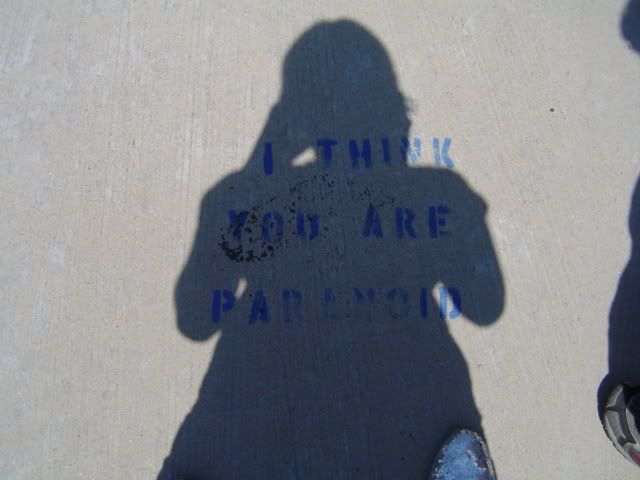This most recent reminder came about during my re-reading of the New York Trilogy:
"Even if it is not significant, it has the potential to be so...The world of the book comes to life, seething with possibilities, with secrets and contradictions....nothing must be overlooked." (Auster 9)
Compare this to my own poetic statement, which is included in my book. The ideas must have stayed with me, burrowed deep into my mind, and re-emerged when I was writing. So Auster is one of the main influences for my work, along with Susan Howe, T.S. Eliot, and the Bible.
The New York Trilogy totally changed the way I view identity. I cannot recommend it highly enough. Be careful, though: if you think about it too long, and identify yourself with it too closely, it can make you start to feel somewhat detached from reality.
Auster's ideas and themes are very provocative and thought-provoking. The New York Trilogy gives us a disturbingly vivid, dystopian image of the self, identity, and relationships. Normally "dystopia" brings to mind 1984 and Brave New World, and involves a critique of a nightmarish society along with commentary on how it affects individuals. However, if every protagonist loses his identity, and eventually loses touch with reality, then this loss of control seems inevitable, which is arguably much more frightening than fictional totalitarian societies.
Using dime store mystery novels as a starting point, Auster creates a mystery more disturbing and compelling than any other I've ever encountered. One character begins a casual investigation of another, becomes drawn into and consumed by the investigation, and ultimately his sense of identity is lost. The self becomes the other, the other replaces the self, the two are interchangeable, they merge, fuse and split, and the self disappears as if it were an illusion.
It's very effective on a visceral level as well, not because it simply draws the reader into the mystery, but it enacts the very thing it is talking about. It creates a frightening sense of confusion and displacement, and causes you to question what identity means. When reading, I felt like I was always a few steps behind. At the beginning there is a relatively "normal" setting, maintained just long enough that you feel comfortable with it, and then it shifts radically so many times that you cannot reorient yourself. Auster's world does not let you reassert any sense of order or normalcy.
The way we structure things in our minds allows us to process large amounts of information and function normally, at the cost of ignoring many irrelevant details. Auster asks that you consider every detail as potentially important, but this task seems practically impossible when you're accustomed to using your schemata to navigate the world.
Auster blurs the line between author and character, even making an appearance in the first story himself, but he does not explicitly delve into the relationship between the reader and the characters. As I read the second story, Ghosts, I had to wonder about my role as an observer of two fictional characters who were observing one another. I think it may have effectively made me the ghost in the story.
After you're done reading, you'll be afraid of spending too much time writing and isolating yourself in an urban apartment.
